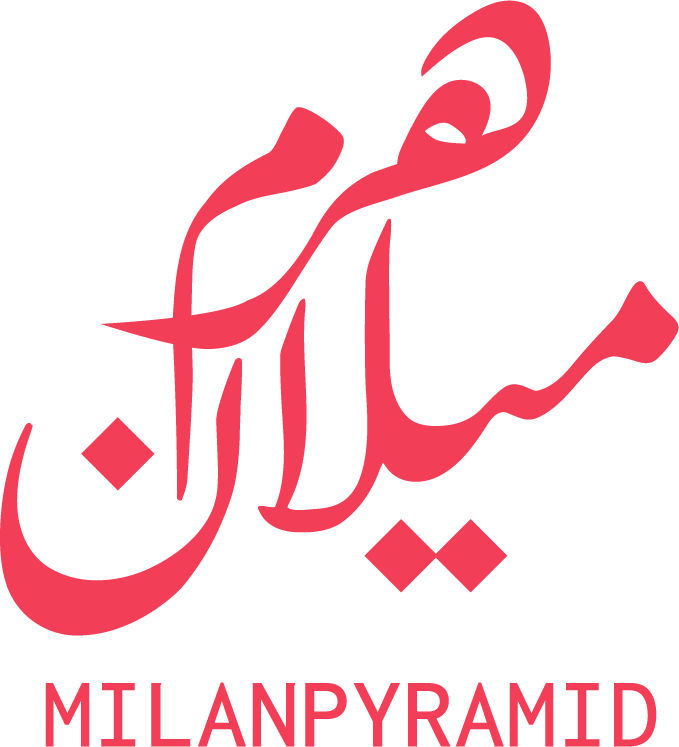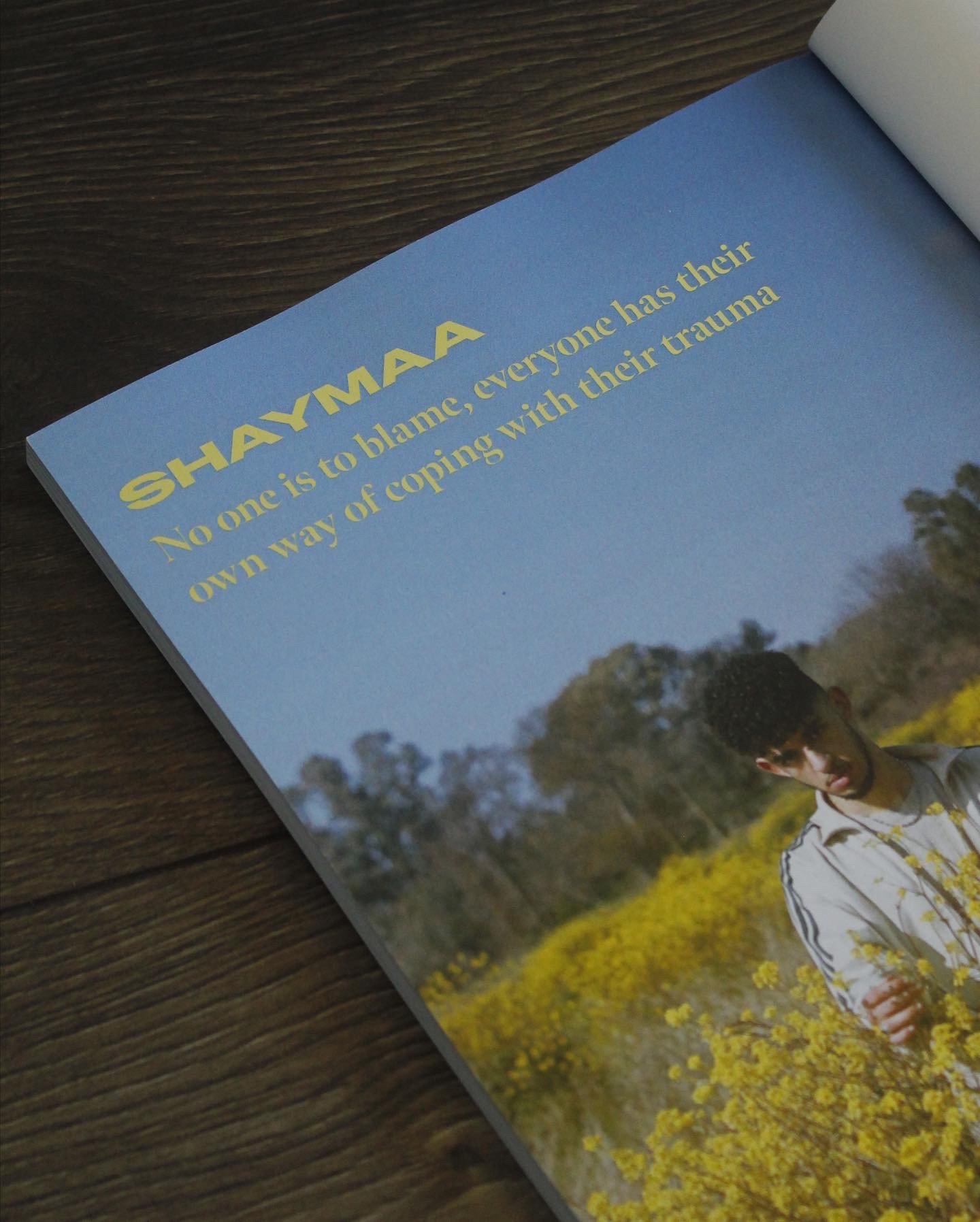Shaymaa - The Road To Nowhere
Wrote this article for the short film “Shaymaa” that got screened for the first time at the Barbican Center of London, for The Road To Nowhere:
No one is to blame, everyone has their own way of coping with their trauma.
Two Egyptian brothers from Rome show the ways intergenerational cultural clashes play out through their short film, "Shaymaa". Aya Mohamed, in conversation with the filmmakers, explores notions of immigrant motherhood and parental rifts.
As second-generation immigrants, we can grow up with a twisted concept of what love is. The first love we encounter is that of our parents. They nurture us in the only way it was thought to them. Their values differ from the culture around us, so their efforts focus on protecting us from the outside world. But can this act of love be considered oppressive? That's what Mosa and Yosif Keshk were asking themselves while working on their short film, "Shaymaa".
For me, there is a lot of pain and guilt that rises while watching Shaymaa. Even if you have a good relationship with your mother, the fear of disappointing or upsetting her is unsettling. It is scary to move on without their blessing but you hope that one day they will understand and accept your choices. Is it worth losing yourself in order to retain their love, or do you lose them in order to maintain your identity? I wish that finding a compromise was a more reasonable approach in our communities.
“Even if you are not from an immigrant family, most of us experience generational and culture clashes just based on age gaps.”
Aya Mohamed: In the film we see a little girl getting blindfolded by an older woman. The blindfold can be seen as an act of oppression or an act of love, by a fearful mother. Do you think that a relationship like theirs can be fixed? If so, how?
Mosa & Yosif: We think there’s nothing to be fixed. It’s just the way life is, the way human beings are with their weaknesses. In this case, we can see a mother who isn’t capable of accepting her daughter as she is.
It's not a new feeling to any of us; the struggle that we go through to make our families accept our life choices. Even if you are not from an immigrant family, most of us experience generational and culture clashes just based on age gaps. The problem becomes worse the moment that, on top of everything else, your parents have religious or cultural backgrounds that are different to your own. If you are lucky, they will respect your decision even if they don't fully understand it, but the worst-case scenario is that it could lead to a significant rupture in the relationship.
A: At the beginning of the video Shaymaa is saying goodbye to her mother, it feels like a funeral. Is she dead, or dying?
Y: The opening scene is very metaphorical. A separation between the two leads to the death of their relationship. Shaymaa is acting out a ritual for the last time to both recall, and say goodbye to, her mother.
A: What motivated you to write this film?
Y: Everything started from my brother’s graffiti. Mosa has previously collaborated with Unicef Italy for the exhibition celebrating its 75 year anniversary. You might have also recognised one of these graffiti murals in the Netflix Italy series Zero.
We wanted to create a frame for his art. Not only to serve the graffiti but create something that could add to its value, so we built a story around it. And we wanted to create something that we could also relate to.
A: Mosa, tell me something about this painting.
M: You know, it wasn't a hard mural to make but we were met with a bit of a grudge from the neighbourhood at the beginning. The sketch showed the mother with a more traditional Islamic headscarf and they didn't like that.
“Italy is my home but I guess there will always be a missing piece to the puzzle.”
A: What is it like to be an Egyptian in Rome? What was your experience like growing up?
M: For me, it’s like making a puzzle of your life where not all the pieces complete each other, but you have to accept it as it is. We Romans are very proud of our city but at the same time, I think that if we want to grow artistically, we have to detach from it and experience different realities.
A: Yosif, what's your relationship with Egypt? Do you consider Italy your home?
Y: Egypt is the place where my blood comes from, and every time I think about it, I feel genuine love and nostalgia. Of course, Italy is my home but I guess there will always be a missing piece to the puzzle.
A: Does the film reflect your personal history?
M: As we said before it can be anyone's story but in this case, it’s not ours specifically. Inside our communities, between our friends, through the families... it is very recurring.
A: I noticed that the dialect used in the video feels like a mix between Egyptian and Moroccan Darija, was this a choice?
M & Y: No, it wasn’t a choice. We were recording in Egyptian but during the recording session the voiceover came out Egyptian/Moroccan and we liked it a lot cause it feels more original. In Italy, there are huge communities that have migrated from Egypt and Morocco.
A: I am an egyptian-italian myself and I was wondering how was it for you guys to grow up in Italy as children on Egyptian immigrants?
M: We did go through some difficulties, like episodes of racism and discrimination are nothing new of course. But honestly none of us ever let that define who we are or what we
want to do. Fortunately, it doesn’t touch us to the point that it can be harmful so we just move past it.
A: While watching the film, I fell in love with the photography of the locations. Where was it shot?
M & Y: Rome. The flower field is behind our house, on Nomentana road. When you see the hands holding and the bandage, that's at lake Bracciano. And the graffiti is in Tor Bella Monaca. Everything felt so familiar to us.
A: What advice would you give your younger self about growing up second generation?
M: Always be proud of who you are!
A: My last question for you guys is does Shaymaa follow her own way instead of what her mum wants at the end?
M & Y: Yes, she does. Her eyes open at the end to represent awakening from a numbness. She chooses to follow her own path.
While I was writing this piece my mom came in the room, sat on my bed and said “aren’t you gonna come watch tv with me?” and I instinctively replied, “no, I’m busy”. But once she left I realized how that was her way of communicating a need based on her love language.
Tiffany Teng has a wonderful article on Vice “Food was my immigrant mother’s love language” where she writes: << My parents made up for their absence with the fruits of their labour, whether it was plentiful nutritious food, a college education, a car, or a few months’ rent when I struggled to find work.>>
Growing up with immigrant parents shapes your identity. The outcome depends on so many factors. But the common theme here is growing outside of their love. Becoming your own person, and cutting that umbilical cord is a crucial passage. They go to great lengths for their families sacrificing everything, so when the moment comes for us to set our own path it feels like a betrayal.
Especially if you came from a family that struggled economically you are aware of what “sacrifice” really means. The result can either lead to children being motivated to have a more successful life or in other cases it creates a toxic environment, an oppressive relationship based on their expectations of us.
What usually happens is that the children end up sacrificing more on a mental health level. We internalize our parents struggles differently depending on how their trauma was introduced to us.
I would like to leave you with this quote by Aakash Ray: Love can be multifaceted — it can be loud, it can be physical, it can be over-the-top. But, there’s another side. It’s not handed to you. It’s not in your face. It’s unspoken.
_
SHAYMAA CREDITS:
Directed by Yosif Keshk
Written by Mosa One & Yosif Keshk
Starring Ibtisam Jmel, Mariam Ouadadi
1st Assistant Director Mouadh Ben Mohamed
2nd Assistant Director Paolo Blarzino
Location Manager Mouadh Ben Mohamed
Costume Designer Chiara Ferrantini, Luisa Santangelo
Set Photographer Marco Russo
Music Fairuz , Caterina Barbieri, Antonio Casimir Cartellieri
Sound Designer Yosif Keshk
Artwork Mosa One
Editing and color Yosif Keshk
BM Entertainment
Still Photos Marco Russo
—
https://www.michigandaily.com/south-asian-voices/immigrant-parents-unspoken-love-langua ge/
https://www.vice.com/amp/en/article/kzdxwm/food-was-my-immigrant-mothers-love-languag e




